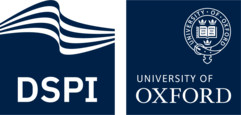In a world transformed by ‘big’ and ‘novel’ data, health promotion researchers have a unique opportunity to integrate and learn from recent advances in technology and computing, as well as new platforms for individuals to record, contribute, and analyse their own health data. At the same time, smaller-scale and participant-driven studies are also needed to understand critical questions of how and why and to advance health promotion and health equity more generally. The growing field of citizen science presents numerous opportunities for health promotion researchers to empower participants to systematically collect and interpret their own data. One citizen science methodology developed at Stanford University, Our Voice, is presented as an adaptable, accessible, and action-oriented model for practitioners to consider. An evidence-based participatory method, Our Voice offers a systematic approach to better understanding contextual issues relevant to individuals’ ability to adopt and maintain healthy lifestyles. Our Voice applications have ranged across the lifespan, geographies, socioeconomic levels, and research questions. We present the history of this method, project examples, and discussion of its advantages including adaptability, operationalization of multi-level research, empowerment and capacity development, and translation of research into real-world change.



